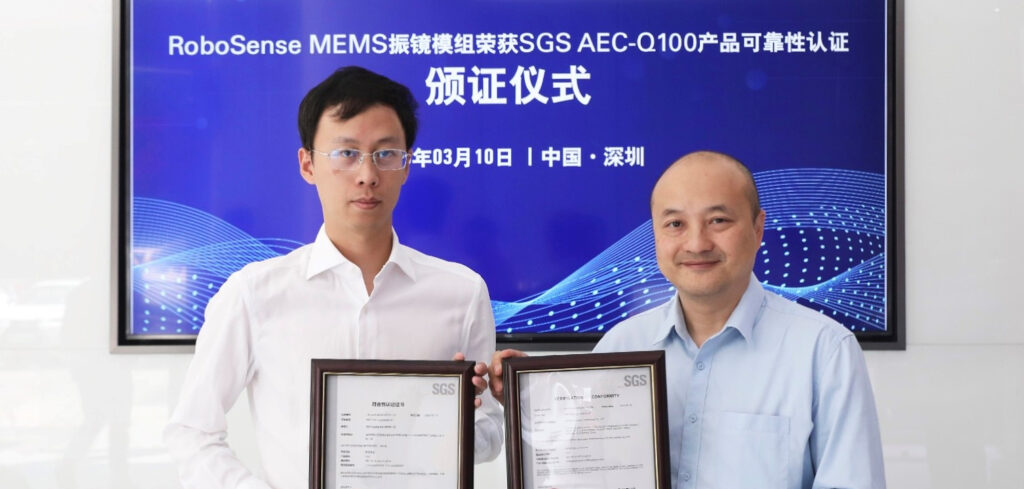Lidar sensor systems provider RoboSense has been granted AEC-Q100 certification and reliability test report by testing, inspection and certification company SGS-CSTC Standards Technical Service (SGS). The RoboSense M Series lidar is stated to be the only AEC-Q100-qualified lidar scanner product in the world.
The AEC-Q100 certification demonstrates that RoboSense’s lidar MEMS mirror module meets the requirements for automotive applications and provides practical safety for M Series lidars. RoboSense has worked in close collaboration with SGS, which has bridged the gap in reliability testing for lidar MEMS mirrors worldwide and provides a reference for future testing.
AEC-Q100 is a fault-based stress test qualification for packaged integrated circuits and a comprehensive reliability test and certification standard for automotive ICs. It is classed as a basic test threshold for chips to be used in automotive manufacturing.
“RoboSense places great emphasis on product reliability from design to smart manufacturing, and actively supports the deployment of standard automotive-grade systems and enterprise product verification,” said Tony Zhang, CPO of RoboSense.
“Previously, RoboSense had received ASPICE CL2, IATF16949, CNAS and various other system certifications. The AEC-Q100 certification will further ensure the reliability of our M Series lidar products, make high-quality lidars available to partners, and promote the rapid growth of intelligence in the global automotive market.”
“Achieving AEC-Q100 certification of RoboSense M Series lidar MEMS chip module is the first complete testing of scanners for automotive reliability in the lidar industry worldwide,” explained Zhao Hui, general manager of SGS China Interconnection and Products Business Group. “This not only increases the competitiveness of M Series lidar products, but also sets a new benchmark for mass adoption of lidars in the automotive industry. Going forward, SGS will continue to support RoboSense in reliability testing and verification of lidar products to facilitate global progress in the lidar industry.”


